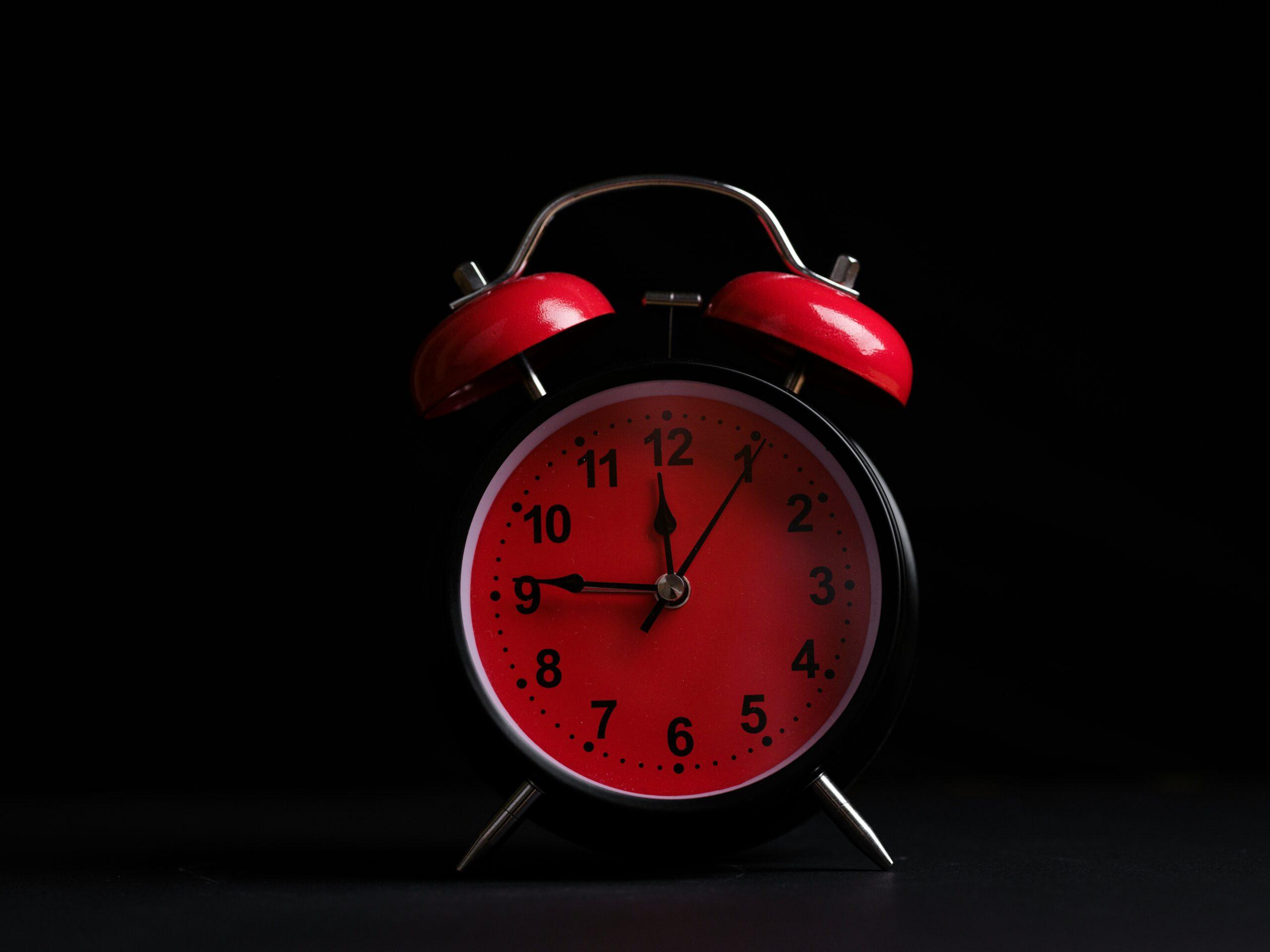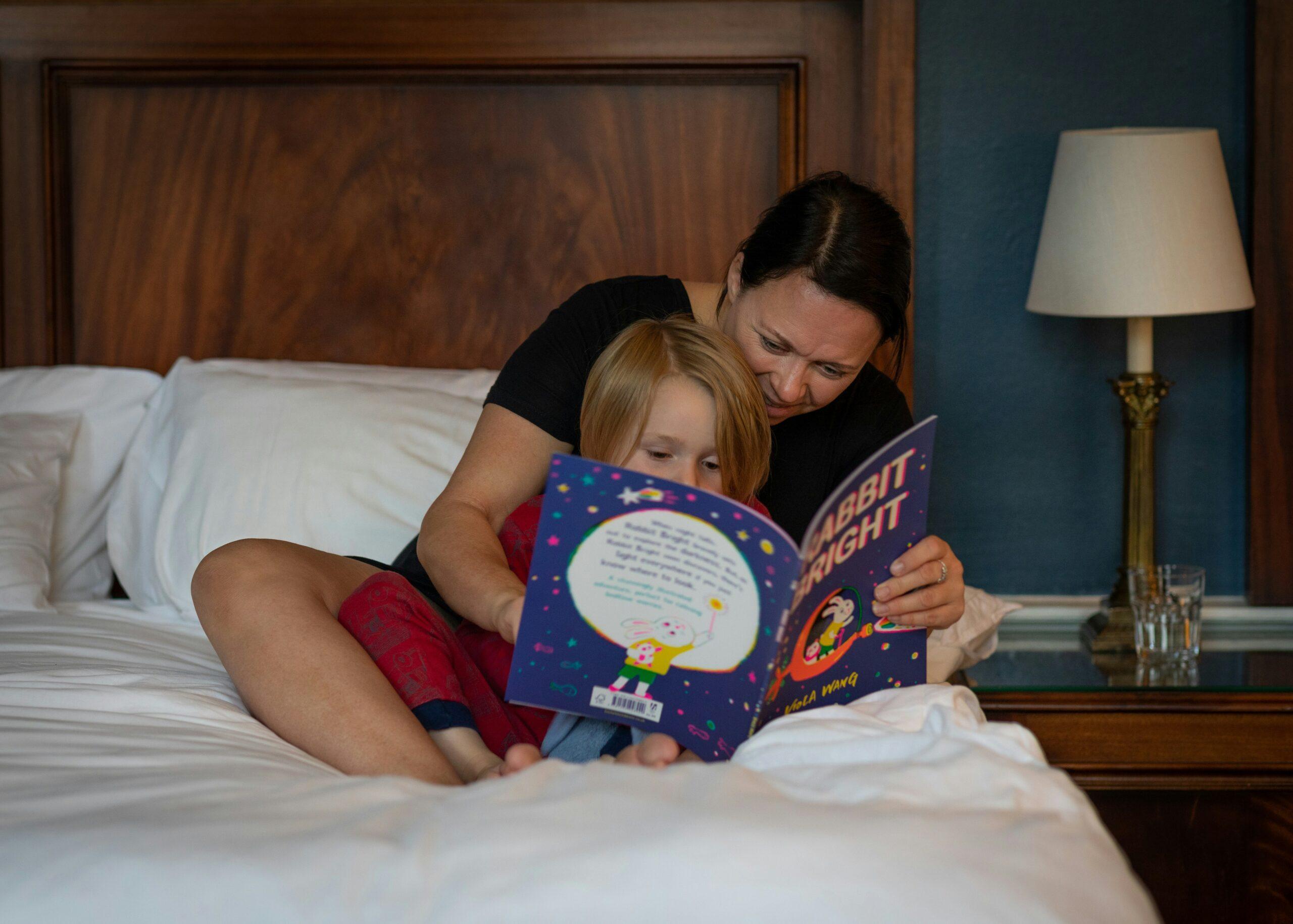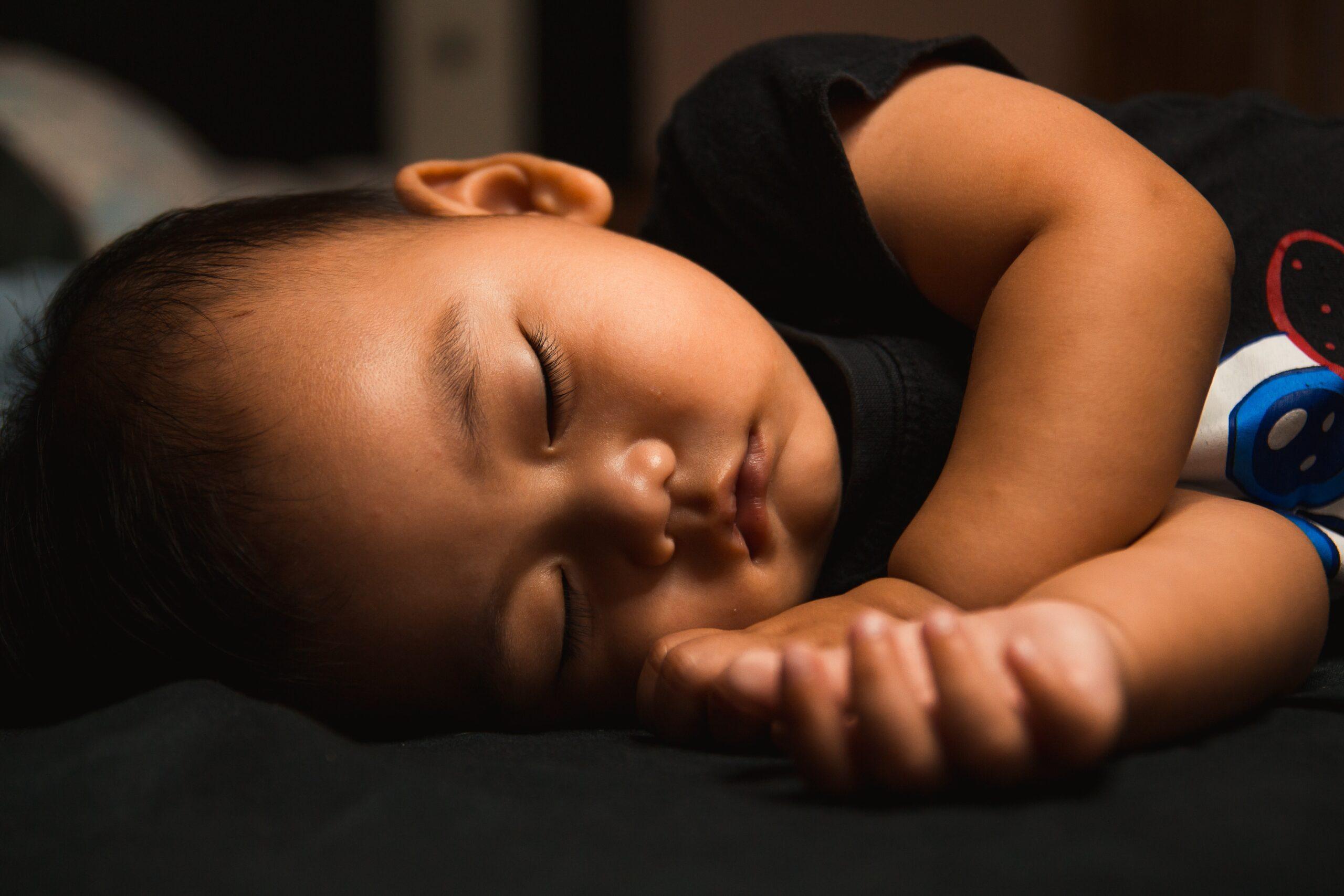For many parents, bedtime is a nightmare that happens every night. Kids don’t want to go to bed, and because they go to bed late, they don’t want to wake up in the morning. The good news is that there are many things you can do to get your child to go to bed at the same time every night.
The Most Important Steps Before Bedtime
Getting your child into bed and asleep at the same time every night requires consistency. You’ll end up creating a bedtime routine that will make it easier for them to go to sleep.
Reduce Bright Lights and Turn Off the TV Before Bed
TVs and other screens emit blue light that tells your brain that it’s morning time. On many smartphones and tablets you can turn on a blue light filter, or you can download a blue light blocking app that will automatically reduce the amount of blue light emitted by a certain time every night, but it’s far better to turn off screens at least an hour before bed.
Make sure the bathroom your child gets ready for bed in doesn’t have bright lights. If while brushing their teeth they’re staring into a mirror that has bright overhead lights, this could increase the amount of time it takes for them to get to sleep. Install dimmers in your bathroom, use night lights for brushing teeth, or use a hallway light.
Besides the blue light, your child shouldn’t be engaging in any stimulating activity an hour before bed. If they’re playing a video game, they’re being stimulated and may have a hard time slowing their brain down and won’t be able to sleep. If they’re on social media, they may be interacting with others that may be causing them stress.
Make Sure They Exercise During the Day
If children don’t exercise, they may have too much energy and have a hard time falling asleep at night. Just avoid your children being active within 3 hours of bedtime as it can be stimulating.
Establish a Stress-Free Routine Before Bed
For a couple of hours before bed, the house should be peaceful. No running, yelling, or stimulating activities. This routine may include reading, storytelling, changing clothes, brushing teeth, taking a shower or bath. If there are issues getting them to bed, your stress can make them stressed and cause anxiety about sleep. Before bed, everyone should talk in calmer tones and not focus on any negativity.
If you find that there are too many things to accomplish in the evening, such as homework and extracurricular activities, consider reducing the number of things that they’re doing. Sometimes kids can be over-scheduled just like adults and it causes stress for everyone.
Food and Drink
If your child complains of being hungry or thirsty, you may want to experiment with a small snack before bed that will help them sleep. Don’t give them any foods with sugar or caffeine. It’s a good idea to look at labels to see how much sugar is in food that you’re giving them. Many foods that you would assume have no sugar have added sugar, such as salad dressing and ketchup.
Some foods that can help you get to sleep faster include:
- sweet potatoes
- almonds
- bananas
- turkey
- fatty fish
- cherries
- kiwi
- honey
- oatmeal
- passionflower tea
- chamomile tea
- walnuts
A small portion of protein and carbs, such as almond butter on bread is a good option.
Make Sure Their Room is Dark, Quiet, and Cool
If they’re old enough, having them close the shades and drop the temperature of their room can be part of their bedtime ritual.
The ideal sleep temperature is between 60 and 68 degrees, there should be no extraneous light, and the house should be quiet. If there’s noise in the house, the kids may feel that they’re missing out on some fun. So it could be part of your nightly ritual to do something quiet until they fall asleep.
If you can’t control the noise in or outside of your house or apartment, and the noise is making it difficult for your kids to go to sleep, you can use white noise such as a fan or an app like White Noise Lite.
How to Deal With Monsters Under the Bed and In the Closet
If your kids are afraid of a monster in the closet or under the bed, you can find creative ways to get rid of their fears, such as monster spray (a spray bottle with water will do), or teach them a special prayer.
If your child regularly complains about monsters, pay attention to what they’re getting exposed to during the day. If they’re watching movies or cartoon that are scaring them, you may want to reduce that exposure, or make sure it happens earlier in the day.
Consistent Sleep & Wake Times
One of the most important rules of sleep hygiene for adults and kids is to fall asleep and wake up at the same time every day (including weekends). When your brain can establish a consistent schedule, it will often make you feel more well rested. The reason is because of our internal clock or circadian rhythm. It’s anchored to light, so when we see sunlight in the morning, it tells our brain to wake up, and when it’s been dark for a little while, that it’s time to sleep.
Some people are early birds and others are night owls, so there’s some flexibility for each individual, but it’s important to establish a rhythm so that your child’s brain will know what to expect. If they break the rhythm by sleeping late, they’re more likely to go to bed late, and then wake up later the next day. And if they have to be up at a certain time in the morning, they’ll have a hard time getting up, and they’ll be tired and cranky during the day.
When establishing sleep and wake times, keep in mind that humans sleep in cycles. The first sleep cycle takes about 90 minutes, and the other 3 or 4 cycles take between 100 and 120 minutes. If you try to wake your child when they’re in the deep sleep phase (stage 3), it will be difficult to wake them, and they’ll be more groggy when they wake up. It’s easier to wake them during stage 4 (REM). This is the rapid eye movement phase when dreaming occurs, or during stage 1, light sleep. During these stages, the sleeper will move around more, whereas during stage 3, there’s usually little to no movement.
If you try to wake your child at 6:30 am, and they’re not waking up easily and really groggy when you wake them, you may have woken them in the deep sleep phase. Check in on them until you start seeing more movement, which is often a sign of them being in a lighter phase of sleep. Note the time and notice if they woke up easier and if they seem to be well-rested. It may take a few tries, but finding the optimum wake time can be a win for everyone involved.
If your kids are going to bed too late, gradually make their bedtime earlier by 15 minutes for a few nights, then 15 minutes earlier for a few nights until you reach the ideal bedtime. This technique is called bedtime fading. If you try to make them go to bed an hour earlier, they probably won’t fall asleep and will probably resist you.
Are Your Kids Getting Enough Sleep?
Preschoolers ages 3-5 need 10-13 hours of sleep per night, ages 6-13 need 9-11 hours, and teenagers need 8-10 hours. But just because they’re in bed doesn’t mean they’re sleeping. They may be using their phone, playing a game, or just unable to sleep. Quietly check in on them to make sure they’re asleep.
Another option is to download a sleep app onto a phone near the bed to track their sleep. A popular one is Sleep Cycle that’s available for Apple and Android. It will give you a chart of your child’s sleep cycle through the entire night showing when they fell asleep and what part of their sleep cycle they were in at any part of the night. It saves data from previous nights and allows you to enter additional data for you to track, such as if they exercised during the day. The app will also record snoring as well as give you average sleep quality for each day of the week. The app works in airplane mode so they won’t be disturbed by notifications or lights. The app also has a gentle wake up feature.
What To Do If They Keep Getting Out of Bed
The Cleveland Clinic recommends taking your child back to bed and telling them that the door will stay open as long as they stay in bed. If they get out of bed, the door will be closed but not locked. If they get out, close the door for 1 or 2 minutes. Stay consistent with this feedback. If they keep getting out of bed, you can increase the amount of time that the door is closed.
If they stay in bed you can praise them for a good job. If age-appropriate, you can allow them a bedtime pass so they can get out once during the night. You can also praise them for staying in bed throughout the night.
Be Careful About Bedroom Punishments
If when they get in trouble they’re sent to their room, they may associate their room with punishment and may resist going there at night.
If Your Child Still Has Problems Sleeping
Children can have sleep disorders such as sleep apnea. If you suspect there’s an issue, talk to a sleep specialist.




